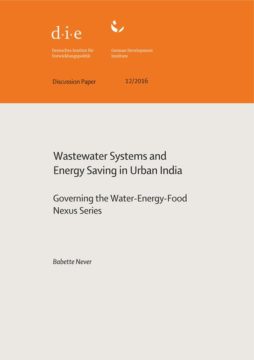This paper analyses the past and present efforts by the German government at the federal level and its 16 federal states to contribute towards ongoing academic and policy debates on translating the 2030 Agenda for Sustainable Development into action. The paper applies the concept of “policy coherence for sustainable development” (PCSD) as a means to assess the country’s efforts and performance to date in promoting sustainable development at home and beyond its borders. PCSD features as a separate target in the 2030 Agenda (SDG 17.3) and, through its emphasis on joined-up decision-making, is considered one of the key means to implement the new and transformative agenda. In Germany, federal ministries function relatively independently from one another, with the Chancellery only enjoying a finite amount of power that can be used to bring them together. Even more challenging is the coordination between the federal and state (Länder) levels. Germany’s efforts towards translating the 2030 Agenda into action thus need to find the right balance between using the opportunities provided by the transformative nature of the 2030 Agenda and the specific governance advantages and challenges that characterise the country as one of the largest federal republics in the world. Successfully realising the agenda’s goals at home and abroad thus requires Germany to capitalise on institutional processes that have proved their worth over time, but also introduce new reforms and approaches. In particular, the German federal government needs to ensure the “top-down” initiative that lies within its own powers as well as strongly support and encourage “bottom-up” action by the states, cities, local communities as well as different societal actors.
- Veröffentlicht am Donnerstag 14. November 2024 von Deutsches Institut f. Entwicklungspolitik
- ISBN: 9783960210023
- 36 Seiten
- Genre: Gesellschaft, Politik, Sachbücher, Wirtschaft
